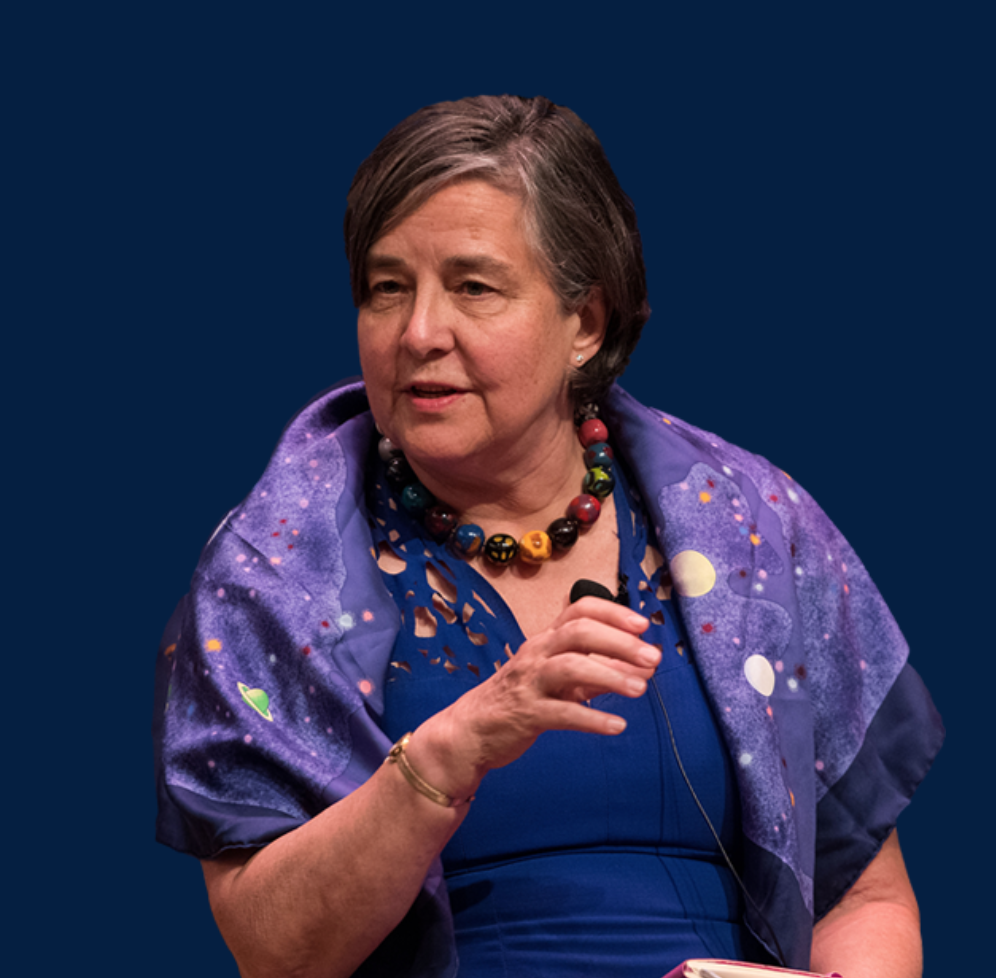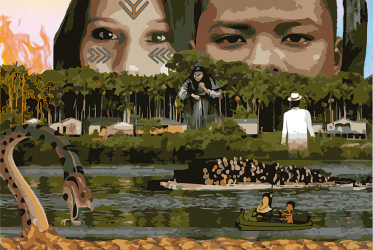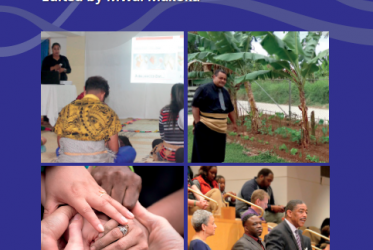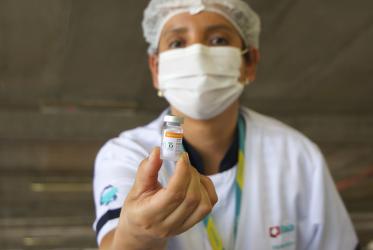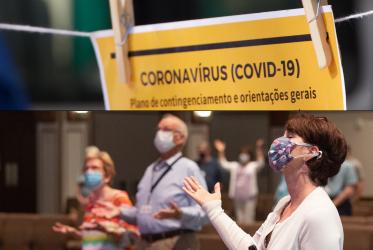by Marcelo Schneider*
A WCC interview with Katherine Marshall, a senior fellow at the Berkley Center for Religion, Peace, and World Affairs, and professor of the practice of development, conflict, and religion at the School of Foreign Service at Georgetown University.
You have been involved in recent discussions about the role of religions in response to the COVID-19 crisis. Can you share some of the key issues that are on the table in such discussions?
Marshall: There are three issues that are prominent both in media coverage and in what we are hearing from colleagues and contacts in different world regions (the repository that we update constantly reflects much of this information). First, with the central public health advice and many national regulations requiring physical distancing the question of how religious communities gather is a major preoccupation. Second, the central religious roles of spiritual consolation, pastoral care, and making meaning of it all is a major preoccupation. And third, the harsh and unequal impact of the crisis (health and economic) on vulnerable people and communities brings the challenge of "preference to the poor" to the center. Communities are often focused on people near them but two additional questions are of great concern: the impact of the disruptions on both ongoing and potential conflicts, ranging from domestic violence to the plight of refugees and wars. The mobilization of resources to allow countries to cope has put the question of debt relief back at the center of discussions and of course there is there a long history of religious engagement.
How do you evaluate the variety of theological responses to the virus so far? Narratives such as the ones that describe COVID-19 as divine punishment seem to find an echo in specific contexts, for example.
Marshall: This question is best addressed to theologians: my focus is more on "lived religion" and the impact of religious institutions and communities. At a very broad level responses to the pandemic present ancient questions about the relationships of faith and science. But they also go to the heart of a very fundamental issue of our time, which is about trust, in institutions and leaders. Many do trust religious leaders and colleagues more than other groups and thus the messages of religious leaders in this time of extraordinary crisis have extraordinary importance.
Churches have a great influence on society, having tangible and intangible assets, practices and structures, spaces, and faith leadership to assist with the responsible disseminating of relevant and truthful data and information regarding COVID-19. Do you see churches as strategic actors in the combat to the pandemic? How?
Marshall: Absolutely yes. The two dimensions that should be obvious to any sensible policymaker or observer are the importance of religious beliefs and communities to people the world over and the extensive reach and presence of the communities and institutions involved. The second is the deeply embedded traditions of care for the vulnerable that are central to religious teachings and example. Beyond this, the significant presence of religiously owned and run health facilities in many countries and the links between peace-building and trauma healing are vitally important now and will become more so in the future.
How can the public health messages of “stay home,” “wear a mask,” “keep social distance” be framed in (constructive) theological terms?
Marshall: There are surely many links, for example between care for others and focus on healing, water and cleanliness, etc. What has emerged very clearly is that while religious leaders can and do have strong gifts and assets in conveying messages, they want and need to contribute to how they are formulated and to adapt them to their own theologies. I see some tension between the need for crystal clear simple public health messages that can be widely spread and readily understood (stay home) and the more complex and subtle realities different people face. There are choices to be made and simple messages are not always applicable. For example, healthcare workers and pastors may choose not to stay home as they are needed elsewhere. And in places where the simple messages simply don't work there's a need to adapt to people's realities. Religious actors are often well positioned to do so.
In your opinion, what is the role for international church-related organizations like the World Council of Churches to play in this crisis?
Marshall: International church-related organizations have crucial roles to play. They have major roles in the first two critical imperatives that face communities everywhere: delivering health care, directly and indirectly, and helping to persuade communities of the merits of the science behind public health so that the disease can be brought under control, and coping with the social and economic consequences of lockdowns and related unemployment and suffering. Looking further ahead, they have major potential roles in dealing with negative
legacies that include tensions and conflicts (peace-building roles). And many are looking to a "reset" of many dimensions of modern life towards greater focus on wellbeing and social justice. With the stark revelation of the impact of inequalities in this COVID-19 era, as well as links among the five "Ps" of the Sustainable Development Goals: People, Planet, Peace, Prosperity, and Partnership, WCC and other global as well as local bodies can inspire, goal, provide witness of what is possible, even shape, the kinds of restructuring, political, economic, social, and spiritual that we all hope to see.
Coping with the Coronavirus - WCC landing page
* Marcelo Schneider is a communication officer at the World Council of Churches.
